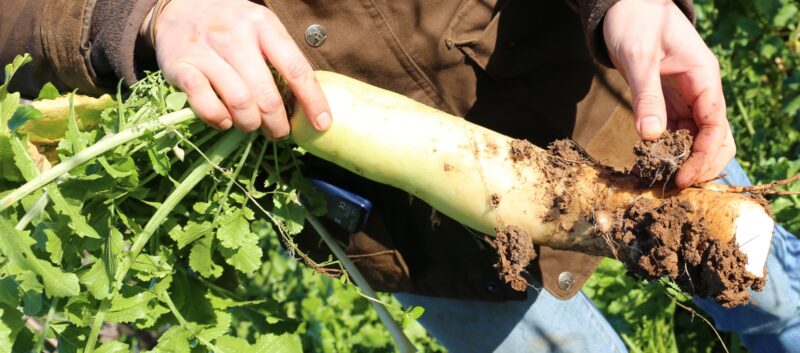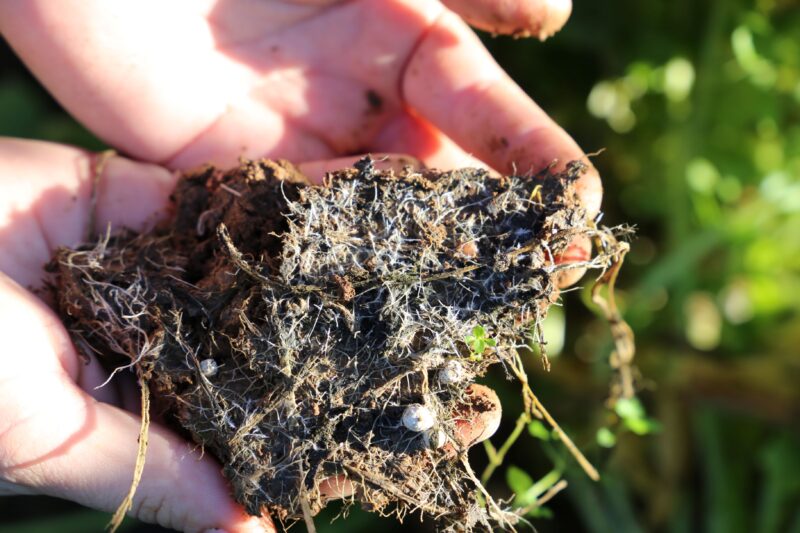Among our rows of vines, we grow radishes… Let us explain why.
«The Chinese radish,» also known as daikon or white radish, is a root vegetable commonly used in Asian cuisine: in salads, pickles, sushi, and ramen. With an outer skin that is white or pale green and a white, crunchy interior, daikon has a mild flavor and can be consumed raw or cooked. In Chinese traditions, it is even attributed with medicinal properties and used to aid digestion, reduce inflammation, and improve respiratory health.

At Château de Nages and Domaine Gassier, we use it as a cover crop because Chinese radish can have a very positive impact on vine cultivation.
Soil structure and fertility:
The roots of daikon radish can penetrate deeply into the soil, which can help break up compact soil layers, improve soil aeration, and foster the development of microorganisms.
When daikon radish decomposes, its roots create a network of channels in the soil. These channels allow for better absorption of water and nutrients by subsequent crops, which can improve vine fertility.
The Daikon radish absorbs various nutrients from the soil, such as phosphorus, potassium, calcium, magnesium, sulfur, and nitrogen. All of these nutrients are stored and released back into the soil when the vines need them in the spring.
Water management and erosion:
Thanks to its root channels, water can flow more easily and be stored deeper in the soil, which crops can draw upon during dry periods.
Additionally, as the radish root is primarily composed of water, it acts as a «water gourd» in the soil, gradually releasing its water as it decomposes.
In addition to improving water infiltration, its extensive root system keeps soil particles together and helps reduce soil erosion during heavy rains, such as Cevennes episodes.

Weed management:
In our climate, daikon radish is sown in late summer. It germinates and grows rapidly with the first rains, occupying the space. By covering the soil faster than most plants, it prevents the germination of seeds from weeds that strongly compete with the vine.
Biodiversity and ecosystems:
Daikon radish can also contribute to providing habitat for certain insects. The flowers of daikon radish are also attractive to pollinating insects, including bees and butterflies. The increase in these insect populations will attract predators such as tits and bats, which can also regulate the populations of vine-damaging insects (grape worms, scale insects, leafhoppers). Thus, it reduces the need for human intervention and contribute to promoting the overall biodiversity of the vineyard ecosystem.
With all these benefits, perhaps you can understand why we’re so excited to see our daikon radish seeds flourish and eventually will strengthen the ground that sustains our vineyards.
Michel Gassier
To enter our website, you must be of legal drinking age in your country.